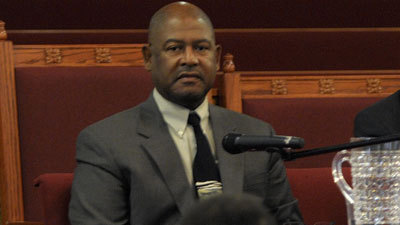
UPDATE: The Connecticut Supreme Court has just upheld the kidnapping convictions of former educator Michael Sharpe, igniting a fierce debate over personal privacy rights. This pivotal ruling, announced on October 3, 2023, confirms that police can collect and analyze DNA from discarded property without a warrant, a decision that could reshape privacy expectations across the state.
In a narrow 4-2 ruling, the court affirmed Sharpe’s convictions stemming from four terrifying assaults that took place in the Hartford suburbs in 1984. The majority opinion, articulated by Justice Andrew J. McDonald, stated that there is no reasonable expectation of privacy concerning DNA collected from discarded items, such as a belt found in Sharpe’s garbage.
This ruling is significant as it raises urgent questions about the balance between law enforcement needs and individual privacy rights. The court acknowledged the evolving nature of DNA technology and societal awareness, emphasizing that the public understands how biological materials can be used to identify criminals.
The dissenting justices, Gregory T. D’Auria and Steven D. Ecker, sharply criticized the majority’s stance. They warned that this ruling could lead to a dangerous precedent, eroding constitutional protections against government intrusion. “The public is now on notice that this court will not protect them from the loss of constitutional privacy,” the dissent stated.
Sharpe, now 74, was sentenced to 72 years in prison in 2023 after cold case investigators linked him to the decades-old crimes through DNA evidence. In a twist of fate, a family member’s DNA profile from a commercial ancestry service led authorities to Sharpe’s discarded belt, which was found to contain DNA linked to the crime scenes.
The court’s majority ruled that the collection of DNA from the belt did not require a warrant, as Sharpe had no expectation of privacy regarding the discarded item. Sharpe’s public defenders acknowledged this point but argued that he retained a reasonable expectation of privacy over his biological material.
This ruling could have far-reaching implications, not only for Sharpe but for the broader legal landscape surrounding privacy rights in the digital age. As technology continues to advance, the intersection of privacy and law enforcement is increasingly under scrutiny.
WHAT’S NEXT: Legal experts and civil liberties advocates will likely rally in response to this decision, calling for legislative measures to protect personal privacy in the face of evolving forensic technologies. The public’s reaction remains to be seen as the implications of this ruling sink in.
The Connecticut Supreme Court’s decision signals a critical moment in the ongoing debate over privacy rights and law enforcement powers. As society grapples with these issues, the case of Michael Sharpe serves as a stark reminder of the complexities involved in balancing security and individual freedoms.
Stay tuned for further developments on this urgent issue as it unfolds.







